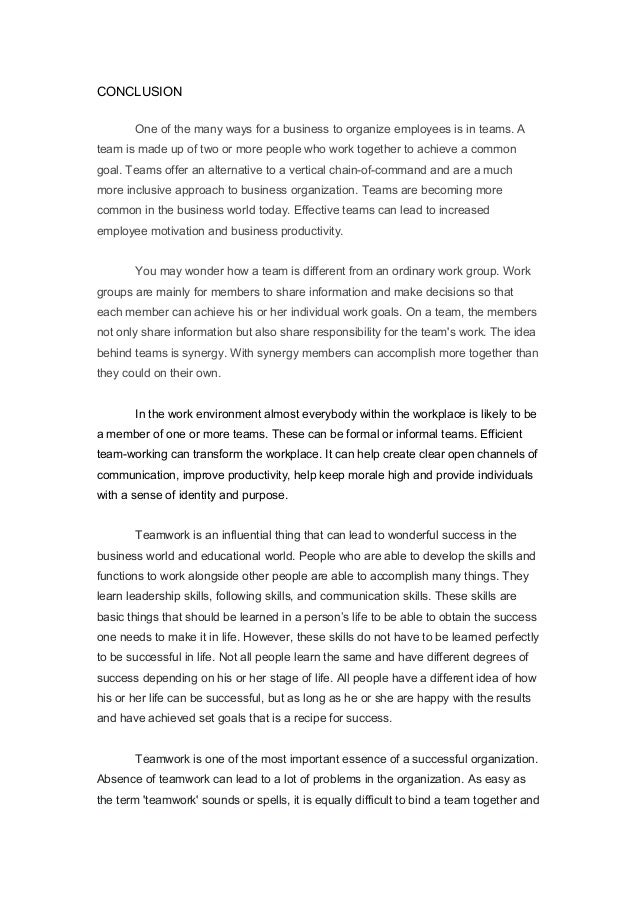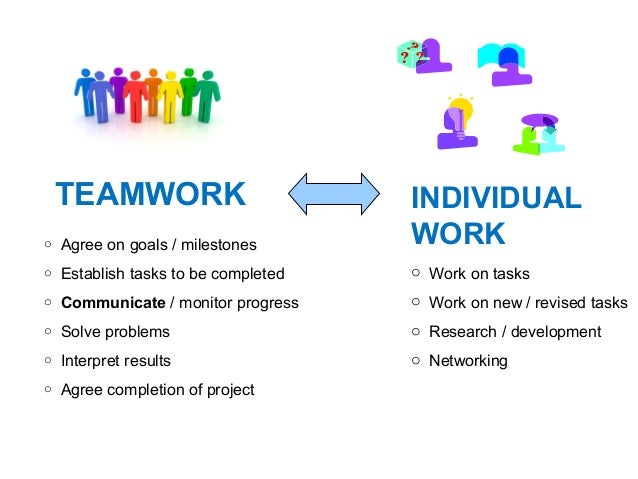Building Teamwork and the Importance of Trust in a Business Environment1 Clayton Becton, Allen Wysocki, Karl Kepner, Derek Farnsworth, and Jennifer L. This document is HR018, one of a series of the Food and Resource Economics Department, UF/IFAS Extension. Original publication date July 2002. Revised July 2019.
Teamwork PPT and PDF Download: Teamwork can be defined as the skill to work with a team of people collaboratively for achieving a particular goal. It plays an important part in the success of a business because it is important for colleagues to work in a team and try their best in all the conditions.
- Teamwork Teamwork is an essential part of workplace success. Like a basketball team working together to set up the perfect shot, every team member has a specific role to play in accomplishing tasks on the job. Although it may seem as if one player scored the basket, that basket was made possible by many.
- Teamwork has the ability to enable the members of the team to have a higher level of emotional security, self-confidence and the ability to plan and decide with others positively. Also, it helps in creating a healthy work environment with workable agendas, creative activities, positive strategies and values.
In the general language, it means that the individuals try to cooperate with each other and use their individual skills. Teams are assembled in the small businesses for performing different tasks such as developing a project report, looking for ways to improve the customer service, etc.
Also See: Social Media PPT and PDF
Teamwork PPT and PDF
Characteristics of an Effective Teamwork
In a group of people, the characteristics of the effective teamwork consist of the willingness to take responsibility and set aside the personal issues for achieving a common goal. Have a look at the characteristics of the effective teamwork:
• Credibility
All the people in the group should take responsibility and accept the credit for their actions as a team and not on an individual basis.

• Sense of Purpose
There is a need to have a sense of purpose in the team for achieving a specific and clear mission. All the members of the team should believe that this mission is necessary to attain.
• Accountability
It is necessary that the teams must be accountable as a group for all their failures and successes. It means that you required rewarding the team as a group for their accomplishments if you are a business owner.
• Cooperative Spirit
There is a need for the spirit of cooperation in a successful team. All the members required to work collectively for achieving the specific missions. It can be tough if some of the individuals in the group are highly opinionated or strong personalities.
• Appreciation
All the members of the group should appreciate the knowledge’s diversity, which the other individual in the group can offer. They should use the skills and knowledge of a particular member in a convincing way for achieving the organization’s goals.

Types of Teams
There are four main types of teams explained below:
• Informal Teams
The main motive behind forming an informal team is social purposes. This type of team facilitates the employee pursuits of the common concerns such as improvement in the working conditions.
• Problems Solving Teams
These types of teams are formed when a problem can’t get solved within the structure of the standard organization. The problem-solving team works in a cross-functional way for the betterment of an organization.
• Leadership Teams
The leadership teams consist of management that brings together for spanning the boundaries between the several functions in the company. The heads of finance, marketing, and production have to interact with each other and come with a common goal for the product.
• Self-Directed Teams
In these types of teams, the autonomy is given to decide how a work will be completed. The self-directed teams are offered with a mission by the company and then determine how to complete this purpose.
Content of the PPT and PDF for Teamwork
- Introduction
- What is Teamwork?
- Why TEAMWORK Matters
- Building Effective Teams
- Characteristics of an Effective Teamwork
- Why Teams Fail?
- Benefits
- Disadvantages
- Reference